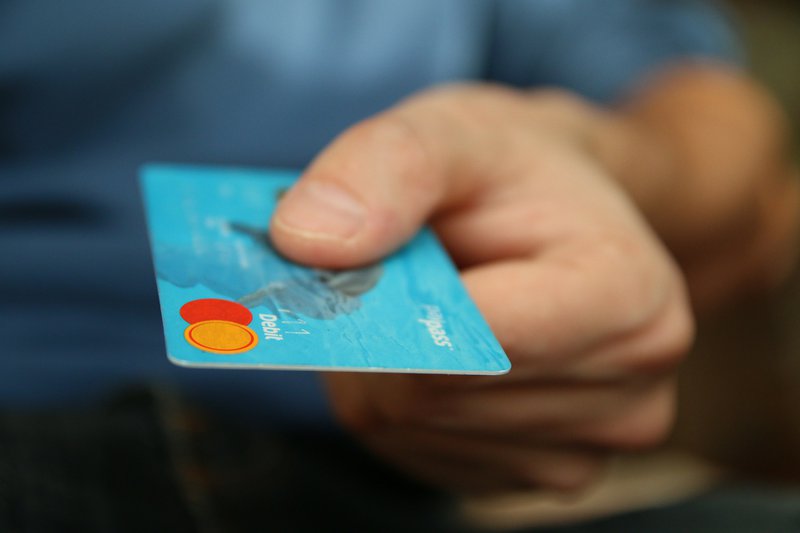Direct Marketing: What you need to know about refunds, returns
Updated | By Wendy Knowler
When the Consumer Protection Act first came into effect six years ago, I was merrily telling consumers about all the extra rights they have when they make a “direct marketing” purchase, and then one day when giving a talk I asked the audience who knew what direct marketing was and one of two hands went up tentatively, so that was telling...

Listen to today's Consumerwatch topic below, or read the details under the podcast.
Since then, I always spell out what it is because if you don’t know what kind of a deal you’ve done - you’ll have no idea what rights you have or don’t have.
So in a traditional transaction, we consumers initiate the process that culminates in a sale in response to an advert or marketing message that is put out in general - an advert on TV, radio or on social media, a billboard or a captivating window display.
And best you make sure that you like what you buy because the retailer is not obliged to take it back - not unless it’s defective.
If it is defective, you have six months in which to return it for your choice of a refund, repair or replacement.
If it’s just a change of heart, the store can say sorry for you and refuse to take it back. Or they can choose to take it back - on their terms, their rules but you’re unlikely to get a refund - most likely a credit.
ALSO READ: Buying online, avoiding traffic and more tips ahead of Black Friday
Direct marketing is a direct approach from a marketer - it’s personal, targeted at you.
So it’s an SMS to
your cellphone, a call, an email or someone who targets you as you're walking
through a mall, and invites you to try out their product.
That’s what happened to Ayanda Ntshangase of KwaDukuza recently at Ballito Junction.
She was walking past a shop, Showbar Salon, on her way to Game when this happened -
“There were two ladies handing out pamphlets, standing outside the shop and he came over to me as I was walking past the salon and he reached out for my hand and he proceeded to lead me into the store.. It’s a salon that I would never go to. He wasn’t forceful; he was just like ‘Maam, just come see this beautiful product we have…” He took my hand and then went in and then he demonstrated the straightener.”
She was impressed by the hair straightener, and convinced to buy it when she was told it would cost her about R300 a month on her credit card. Well, that’s what she understood, but of course a whopping R2000 was debited immediately.
NOW READ: 21 ways to become a clued-up consumer
That’s when she said she wanted out.
"I was like, ‘Noo! Take this back - it’s not normal that R2000 can just go out of my account. They were like, ‘Okay maam, just give it five days, the cooling off period..'”
So, five days after she bought the straightener, she wrote a letter requesting a refund of her R2000.
“Jeremy" of the company Hachev, which owns the brands Princessa and Mica beauty products, responded, saying “Unfortunately no refund can be made with a change of heart. Showbar can offer you store credit to the value of purchase.”
Ayanda then turned to me for help and when I approached the said Jeremy - he told me the same thing.
Which is when I pointed out that this was a direct marketing deal, hence she was entitled to a five business day cooling off period in which to cancel for a full refund.
His response: “ My staff issue a client a pamphlet and the client voluntary walks into the store and we do not push for the clients to come into the store as those are the malls' terms and conditions.”
And then he added - “We have sorted the client regarding her refund.”
So he’s still not getting, or pretending not to get, that their modus operandi is direct marketing.
Ayanda had absolutely no intention of entering that store, much less buying that iron when she entered the mall. She did so as a direct result of that man coming out and luring her in, literally by the hand, and then demonstrating the product on her.
Hence she gets to have a cooling off period, a chance to reconsider her purchase outside of that high pressure sales environment.
And to cancel for a refund if she decides she doesn’t want the product after all.
So know that when you enter a cellphone contract after getting a sales call telling you you’re due for an upgrade or buy an air ticket as a result of an email announcing an airfare sale.
It’s the one time you get to cancel for a refund, even if there’s nothing wrong or faulty with the goods or service.
You do have to do so in writing, within five business days, and the company is legally compelled to refund you within 15 business days of receipt of your written cancellation.
A word of warning - some of these direct marketing companies do their utmost to thwart their change-of-heart customers from cancelling within their cooling off period. So make sure you get the email address from the company and get a staff member to write it down for you, so they can’t claim you misheard and got it wrong.
Show's Stories
-
Netflix announces Squid Game 3 release date
Netflix finally announced the release of Squid Game season 3 and it’s cl...
East Coast Breakfast an hour ago -
Liam Payne’s upcoming guest appearance on Netflix
Liam Payne is set to appear in Netflix’s upcoming reality TV show ‘Build...
East Coast Breakfast an hour ago